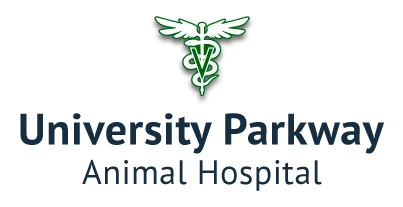Dog Knee Surgery: Signs and Symptoms That Your Dog Needs Knee Surgery
No one wants to see their pet suffer, but as pets age or participate in daily activities, there's a risk of injury. The knees are particularly prone to damage over time. Here is what you should know about dog knee surgery Jackson TN.
Dog Knee Surgeries
Many kinds of injuries can impact your pet. Some include ACL injuries, which make your dog's knees unstable. Here are some signs and symptoms to be aware of to know when your pet has been injured. A few include:
- Limping
- Refusing to use the affected leg
- Swelling on the side of the knee
- The drawer sign, where the tibia slides forward while the femur is held in place
Different surgical techniques can get your pet back on its feet. TPLO, TTA and TTO surgeries change the angle of the knee to help your pet better bear weight. With a traditional repair, Simitri Stable in Stride, Lateral Suture Stabilization or Tightrope surgery, a suture or leader line is placed in or around the bony structures of the knee to better stabilize it over time. Scar tissue, along with other deposits, take hold in the joint. When the suture breaks, the knee is fully recovered.
The Importance of Anesthesia During Surgery
Much like humans, dogs can and do experience fear and pain. Anesthesia is one way to help your pet get through a surgery without unnecessary pain or anxiety. Your veterinarian Jackson TN will determine if your pet needs a tranquilizer before anesthesia. Then, general anesthesia is administered. The heart rate, respiratory rate and blood pressure of your pet are always monitored during surgery. Keep in mind that younger animals recover from anesthesia better than older animals, which may require close monitoring while awakening and recovering from the medications.
What Happens During Procedure
After the anesthesia is administered, your veterinarian begins to operate on your pet. Depending on the type of ACL surgery, the ligaments or bones may be operated on. It's normal for your pet to be in pain upon awakening, so additional medications are provided to reduce overall pain.
What Medication and At-Home Treatment is Best for Post-Op Care
Most dogs stay overnight following the surgery, but then they return home the following day. Your pet is unlikely to want to use the injured leg for several days following the operation. Once your pet feels comfortable doing so, he or she may begin to use it moderately.
At home, you can help your pet by sticking with your veterinarian's treatment and pain-management plan. Do what you can to doggy-proof your house; you should make sure your dog won't jump, slide, slip or otherwise negatively impact the knee or knees. Creating a small, gated area for recovery is the best option.
Contact Us Today or Visit Our Vet for Pet Knee Surgery in Jackson, TN
To find out more about dog knee surgery, visit us at University Parkway Animal Hospital. We are happy to help you decide if this is the right surgery for your pet. Call us at (731) 661-0711.
